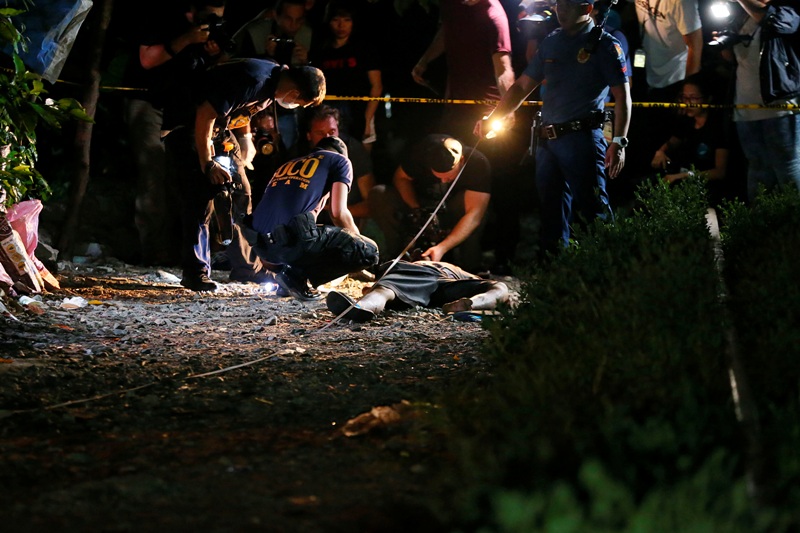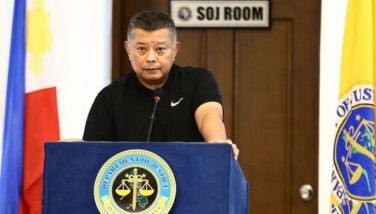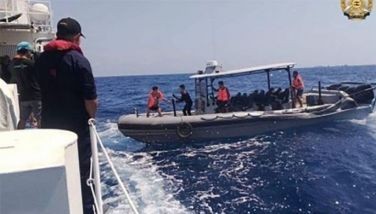Drug war 'drop boxes' risk more killings, says Human Rights Watch

In this Sept. 30, 2016 file photo, police investigators examine the body of one of the three suspects killed in an alleged sting operation by the authorities in the continuing "War on Drugs" campaign of Philippine President Rodrigo Duterte before dawn in Caloocan, north of Manila, Philippines. AP/Bullit Marquez, File
MANILA, Philippines — A new tactic of the Philippine National Police may add to the thousands of killings linked to the so-called war on drugs, an international rights watchdog said.
In its dispatch titled "Deadly Drop Boxes Fuel Philippine’s ‘War on Drugs’," New York-based Human Rights Watch (HRW) warned of th police's "sinister new tactic" in its campaign against the illegal drug trade.
The police puts up drop boxes in their communities allowing residents to anonymously submit names of alleged drug dealers and users.
This tactic was first reported last July in Quezon City and has spread to Roxas City, Pontevedra and Maayon in Capiz, according to HRW.
"People whose names end up in a drop box could get their names placed on police drug watch lists," HRW said.
In Quezon City, the police chief set up one drop box in each of the 142 barangays in the ciry when he launced the neighborhood informant system.
In Roxas City, about 36 names have been submitted by anonymous informants in the first two weeks of its operation in August.
Local police also plans to install such boxes inside the city hall of Iloilo, according to the watchdog.
"Local authorities have even called on the Catholic Church to install drop boxes in its churches in and around Iloilo City and nearby areas," the HRW said.
The Commission on Human Rights (CHR) had called out the system that exposes an individual to mistaken arrest.
"This violates the right of any person to be heard before he/she is condemned. A person's honor, as well as the reputation of his/her family, would also be harmed," the commission said in a statement released last August.
This informant system may well add to the death toll of President Rodrigo Duterte's war on drugs as HRW research showed that police drug watch lists are routinely used to identify targets for extrajudicial killing.
In its 117-page report "License to Kill" released last March, HRW said that the police has repeatedly carried out extrajudicial execution of drug suspects and then claimed self-defense.
"After 15 months and untold bloodshed, the government and police should stop their abusive war on drugs and allow an international investigation into the killings, rather than actively seek to increase the number of its victims," the watchdog said.
The Philippine government, however, had rejected the recommendation of United Nations member-states to allow special rapporteurs to conduct an investigation into the killings of drug suspects in the country.
RELATED: Gascon: Rejection of rights recommendations not a victory
- Latest
- Trending































